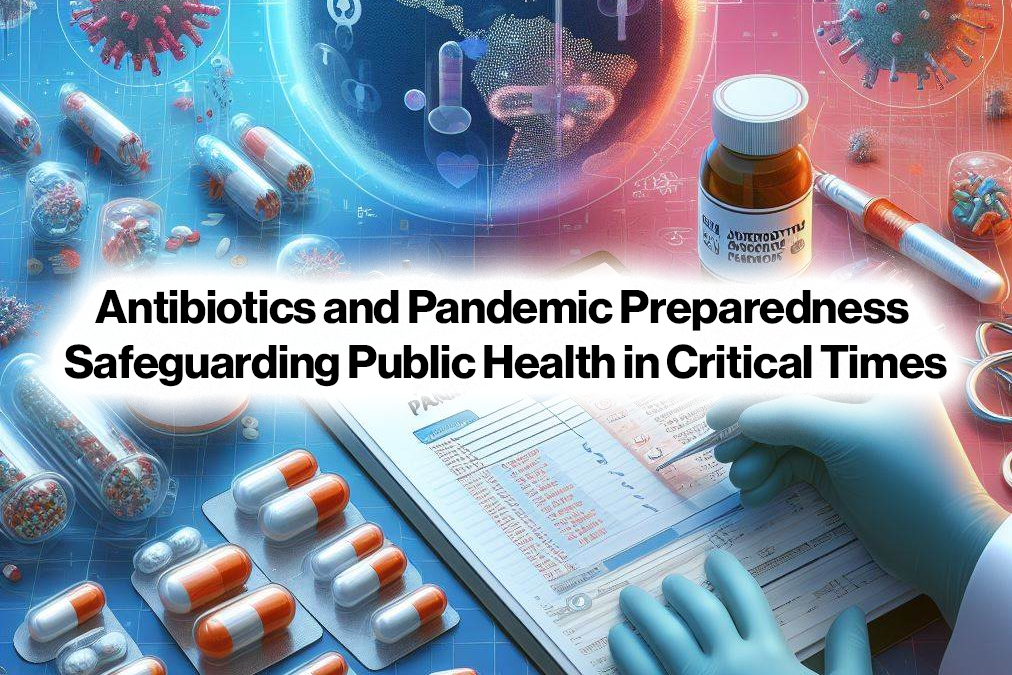In an era marked by the uncertainty of global health crises, the importance of antibiotics cannot be overstated. As the world grapples with the challenges posed by pandemics, such as the recent one that shook the very foundations of our society, it becomes increasingly clear that preparedness is the key to safeguarding public health. In this comprehensive article, we delve deep into the crucial role of antibiotics in pandemic preparedness, highlighting their significance, mechanisms, and the strategies needed to ensure their availability during critical times.
Understanding Antibiotics: Cornerstone of Modern Medicine
Antibiotics are a class of powerful medications designed to combat bacterial infections. They revolutionized medicine in the 20th century and have since become a cornerstone of modern healthcare. By targeting and killing harmful bacteria, antibiotics have saved countless lives and played a pivotal role in increasing life expectancy worldwide.
Antibiotics and Pandemics: A Vital Connection
During pandemics, the demand for healthcare resources skyrockets, with hospitals and medical facilities often stretched to their limits. This is where antibiotics come to the forefront. While antibiotics are ineffective against viruses – the culprits behind pandemics – they are crucial in preventing and treating secondary bacterial infections that can arise as a consequence of weakened immune systems during viral outbreaks.
The Dual Challenge: Overuse and Antimicrobial Resistance
However, as essential as antibiotics are, their misuse and overuse have given rise to a pressing concern: antimicrobial resistance (AMR). The rampant and inappropriate use of antibiotics has led to the evolution of drug-resistant bacteria, rendering some of these life-saving medications ineffective. This double-edged sword underscores the need for judicious antibiotic usage to ensure their efficacy in the face of pandemics.
Strategies for Ensuring Antibiotic Availability
1. Enhancing Surveillance and Monitoring Systems
To bolster pandemic preparedness, robust surveillance and monitoring systems are essential. By closely tracking the emergence of bacterial infections and their susceptibility patterns, healthcare authorities can anticipate and respond promptly to potential outbreaks.
2. Promoting Public Awareness
Raising public awareness about the appropriate use of antibiotics is crucial. Educating individuals about completing prescribed courses of antibiotics, avoiding self-medication, and understanding the distinction between bacterial and viral infections can contribute significantly to curbing AMR.
3. Investing in Research and Development
Research and development (R&D) efforts focused on discovering new antibiotics and improving existing ones are imperative. Governments, pharmaceutical companies, and research institutions must collaborate to overcome the scientific challenges associated with antibiotic development.
4. Strengthening Healthcare Infrastructure
The pandemic revealed the strains on healthcare systems globally. Strengthening healthcare infrastructure, including medical supply chains and facilities, ensures that antibiotics and other essential medications can be distributed efficiently even during times of crisis.
5. Encouraging Responsible Antibiotic Prescription
Healthcare professionals play a pivotal role in minimizing AMR. By adhering to guidelines for antibiotic prescription, physicians can prevent the unnecessary administration of these medications, thus reducing the risk of antibiotic-resistant infections.
The Road Ahead: Uniting for Preparedness
In conclusion, the role of antibiotics in pandemic preparedness cannot be underestimated. While viruses might be the primary focus during global health crises, the potential for secondary bacterial infections necessitates a comprehensive approach to healthcare. By implementing strategies that encompass surveillance, awareness, research, infrastructure, and responsible prescription, we can fortify our defenses against both viral and bacterial threats.

Leave a Reply